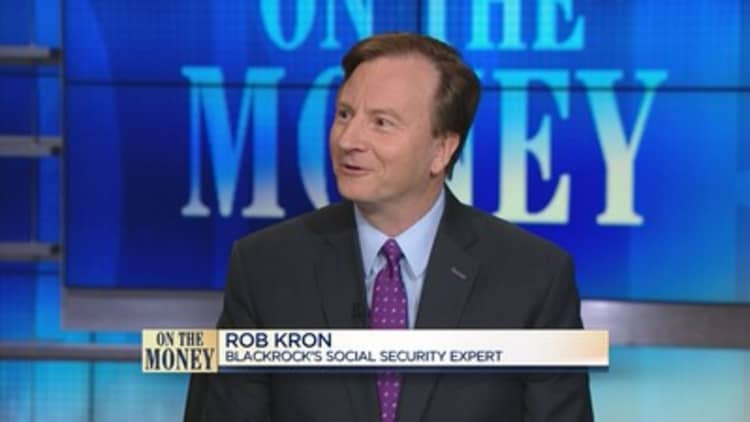
A stark reality of retirement planning is that your future is riding on the quality (read: plausibility) of your assumptions. Abject optimism can be dangerous.
For example, eight years into this bull market, expecting stocks to deliver as-strong returns over the next decade is
Another
"If you plan on working longer as a way to get by in retirement, you are going to be in trouble," says Craig Copeland, senior research associate at EBRI. "It should be a complement to a solid savings and spending plan, not the foundation."
It's simply too risky to assume you will indeed be able to work longer. A survey by the Transamerica Center for Retirement Studies (TCRS) found that nearly two-thirds of retirees left the workforce earlier than expected because they were laid off, reorg-ed out of a position, or due to general unhappiness with a job. Only 16 percent of retirees who exited the work force earlier than they expected did so because they felt they could financially afford to.
If you plan on working longer as a way to get by in retirement, you are going to be in trouble.Craig Copelandsenior research associate, EBRI
Moreover, a report from Prudential puts a dollar value on why your current employer may not be inclined to do back flips to keep an older you happy and engaged. The estimated one-year cost to a firm when an employee delays retirement: $50,000.
Prudential estimates that on a company-wide level, delayed retirement can increase overall workforce costs by 1 percent to 1.5 percent.
Fewer than one-third of employees surveyed by TCRS report their employer has some sort of "transition" program such as flex work schedules, reduced hours or shifting to a different role.
"Workers' vision of retirement is changing faster than employers' business practices," said Catherine Collinson, president of TCRS. That makes it ever more crucial for pre-retirees to take the steps today that will increase the odds they can continue to work
Loosen your death grip on your current job
Trying to run the table at a job that doesn't exactly float your boat, or that you sense won't likely be a very friendly place as you age, is doubly risky. Making a move in your 50s can be the ticket to working longer. New research by the Center for Retirement Research at Boston College found that 55 percent of 50-somethings who attended college and voluntarily switched jobs continued to work to age 65, compared to 45 percent of workers who didn't make a voluntary move.
Curb your spending now rather than later
It would be personal finance blasphemy to not mention that once you turn 50 you can take advantage
"Get your spending in order and you may not need to have as much saved for retirement because you will need to replace less later on," Copeland said.

Downsizing, or making it a priority to get the mortgage paid off, can also make it more practical to downshift to a lower-paying/part-time job later on.
Make your future self more employable
Just 40 percent of baby boomers with an eye on working longer told TCRS they are keeping their job skills up to date. Less than 60 percent were focused on performing well at their job, and only 14 percent are locked into the need to network.
"If you want to work longer, all those should be at 100 percent," Collinson said. "One of the major disconnects is that few people have taken the important steps to help themselves be able to continue working. You need to be proactive sooner than later."
If your employer offers job training, "you should be the first to sign up," she said. Or check out what's available online or at a local community college. Many employers
How to retire early and save more along the way


